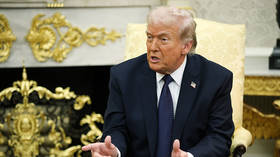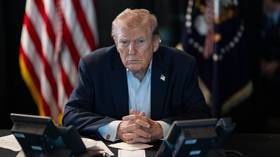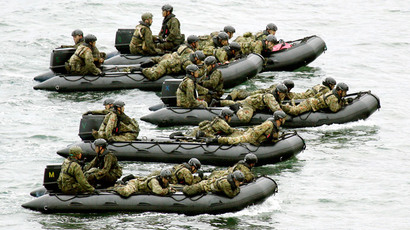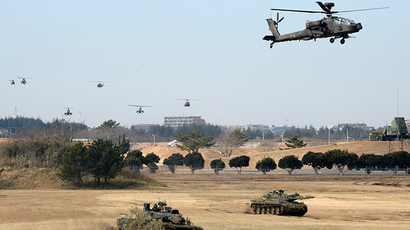Japan may receive offensive military weapons from US amid rising tensions with China, N. Korea
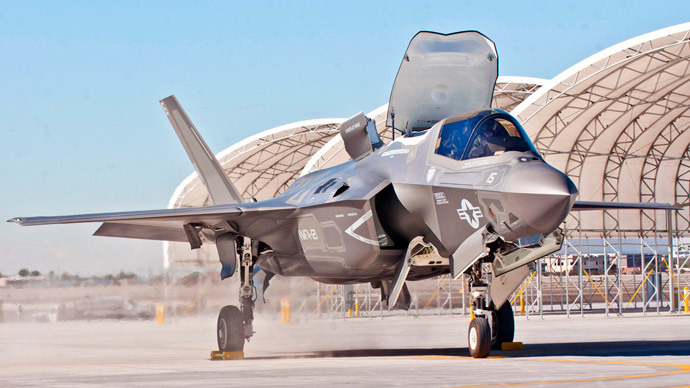
The United States could provide offensively geared weapons to the Japanese military within five years, Tokyo officials say. The discussions between the two countries come as Japan’s rivalry with China intensifies and alliances shift among Pacific powers.
The talks with the US cover what Japan regards as a "strike capability," and are still preliminary. As such, they do not cover specific hardware at this stage, three Japanese officials involved in the process told Reuters. US officials said there were no formal discussions between the two countries, but did not rule out the possibility that informal talks on the issue had taken place. One American official said Japan had approached the US informally last year about the matter.
Japan would need US backing for any shift in military doctrine because it would change the framework of the alliance, often described as America supplying the "sword" of forward-based troops and nuclear deterrence while Japan holds the defensive "shield."
Washington did not have a position on upgrading Japan's offensive capabilities, "in part because the Japanese have not developed a specific concept or come to us with a specific request." said another US official.
"We're not there yet - and they're not there yet," the official said. "We're prepared to have that conversation when they're ready."
Pivot from pacifism
Since the end of World War II, Japan’s constitution has required it to be a pacifist nation. Article 9 of the 1947 founding charter proclaimed Japan’s armed forces are technically domestic self-defense units, and cannot participate even in United Nation-backed conflicts, other than as peacekeepers. But reshaping the military into a more assertive force is a core policy of Prime Minister Shinzo Abe, who was elected to the position for a second time at the end of 2012.
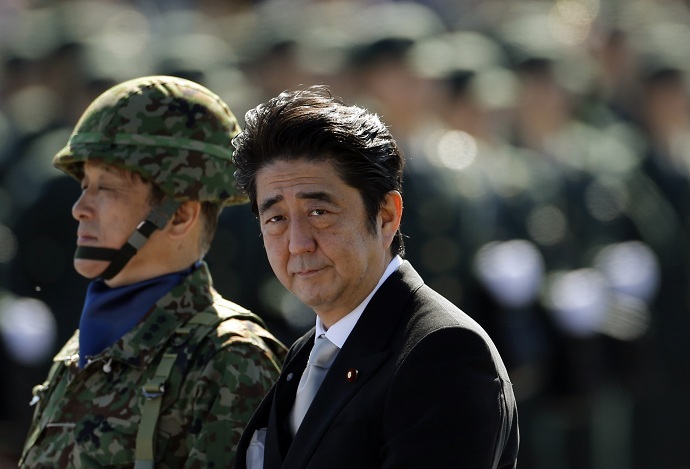
In July, Japan’s Cabinet reversed Article 9. Under the landmark "reinterpretation" (a legal repeal would require two-thirds of the votes of the parliament) Japanese troops could be deployed if “there is a clear existential threat to Japan and if people’s right to life, liberty and pursuit of happiness could be fundamentally overturned,” said Abe.
Since entering office, Abe also reversed a decade of military spending cuts and eased curbs on arms exports. The boosted defense budget is the biggest it’s ever been, allowing the country to pay for drones, stealth fighters and a new high-tech submarine. In its first military export deal in decades, Japan and the US agreed that Japanese-made sensors will be installed on American PAC-2 missile defense systems, to be further re-exported to Qatar. The moves come amid an intensifying military rivalry with China and concerns over North Korea’s missile program.
Sino-Japanese hostility
China has accused Abe of reviving wartime militarism, Reuters reported. The two countries are jockeying for favor from strategically important Pacific nations, including Sri Lanka. In a recent visit to the island country, Abe and Sri Lankan President Mahinda Rajapaksa agreed to strengthen maritime security cooperation and participate in joint naval training exercises, The Yomiuri Shimbun reported. Japan will also provide Sri Lanka with patrol vessels to improve the country’s coast guard. Those boats will come at no cost to the South Asian nation.
At the same time, China has been assisting the construction of port facilities in Pakistan, Sri Lanka, Bangladesh and other nations. The Chinese hope to eventually establish military bases overseas.
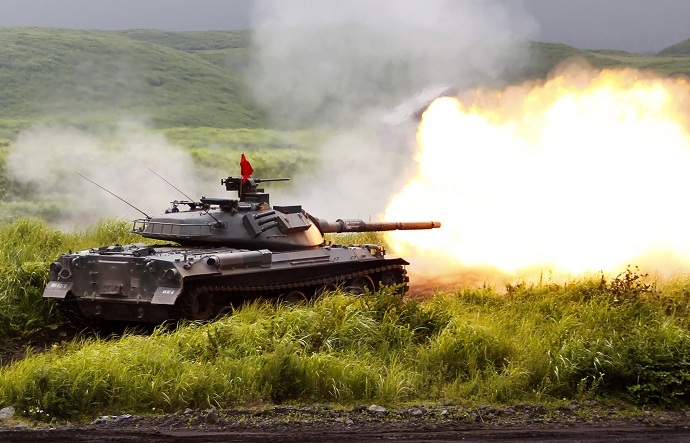
A new survey conducted in both China and Japan gives a glimpse into how tense the Sino-Japanese relationship has become over the last two years. According to the poll by Genron NPO, a Tokyo-based nonprofit group, 53.4 percent of Chinese envisage a future conflict, with more than a fifth of those saying it would happen "within a few years," while 29 percent of Japanese can see military confrontation. Last year, 90 percent of Japanese respondents said they had a negative impression of China. This year that percentage jumped to 93.
Despite the mutual dislike, people on both sides hoped tensions would ease.
When asked to characterize the current situation, 80 percent of Japanese respondents chose either “This is an undesirable situation, and I have concerns” or “The situation is a problem and it needs to be improved.” In China, about 70 percent of survey-takers selected the same answers.
Japan has scrambled its planes over 400 times in the past year to ward off Chinese ships circling the archipelago.
Unease over North Korea
Tensions have also been rising between Japan and North Korea. Most of the Japan’s archipelago of islands is within range of North Korea’s Rodong missiles. Part of Japan's motivation for upgrading its capabilities is a nagging suspicion that the United States, with some 28,000 troops in South Korea as well as 38,000 in Japan, might hesitate to attack the North in a crisis, Japanese experts said.
"[Japan] might want to maintain some kind of limited strike capability in order to be able to initiate a strike, so that we can tell the Americans, 'unless you do the job for us, we will have to do it on our own’,” said Narushige Michishita, a security expert at the National Graduate Institute for Policy Studies in Tokyo. He served as a national security adviser to the Japanese government from 2004 to 2006.
Michishita’s analysis is similar to a comment Abe made to the Japanese parliament in May 2013. "At this moment is it really acceptable for Japan to have to plead with the U.S. to attack a missile threatening to attack Japan?" Abe asked.
Japan would like to reach a conclusion over its offensive military capabilities in about five years, and then start acquiring hardware, a Japanese official said.


